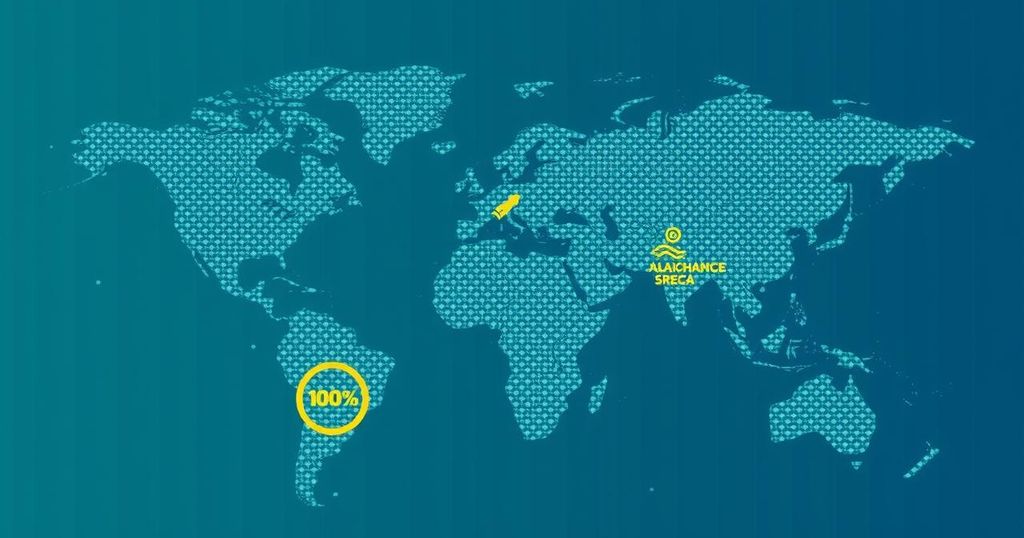Global Health and Humanitarian News: Egypt Declared Malaria-Free Amid Diverse Crises

The WHO has certified Egypt as malaria-free, marking a significant public health milestone. In Cuba, the UN is prepared to assist as Tropical Storm Oscar causes extensive power outages, impacting millions. UN Secretary-General António Guterres has urged calm in Mozambique following the homicide of two opposition figures, while the WHO supports South Sudan in response to severe flooding that has displaced many and worsened health crises.
In a remarkable achievement, the World Health Organization (WHO) has certified Egypt as malaria-free, a landmark effort that finalizes a century-long campaign against the disease that has afflicted the nation since ancient times. WHO Director-General Tedros Adhanom-Ghebreyesus lauded this milestone, declaring, “Malaria is as old as Egyptian civilization itself, but the disease that plagued pharaohs now belongs to its history and not its future.” This certification, a significant victory in the global fight against malaria, places Egypt among only a select few nations—43 others and one territory—recognized for eradicating this disease, following similar accolades granted to the United Arab Emirates and Morocco in the Eastern Mediterranean region. Meanwhile, Cuba is grappling with the impact of Tropical Storm Oscar, which made landfall and exacerbated ongoing power outages that left approximately 10 million people without electricity. The UN has pledged to assist Cuba as it faces worsening infrastructural issues, compounded by a protracted trade embargo from the United States. UN Deputy Spokesperson Farhan Haq noted, “The strong but slow-moving storm has generated significant rainfall in the eastern and central parts of Cuba over the past few days,” triggering concerns about flooding. In Mozambique, two opposition figures were recently murdered, leading UN Secretary-General António Guterres to call for an immediate investigation into their deaths amid heightened electoral tensions. He urged all parties to remain calm and refrain from violence as the country navigates this turbulent political landscape. Finally, the WHO is offering support to South Sudan as it faces severe flooding, impacting nearly 890,000 individuals and displacing over 226,000 people. The flooding, linked to climate change, has hampered crucial health infrastructure and heightened health risks, including cholera and a surge in malaria cases. WHO has initiated the distribution of emergency health kits to assist the affected populations, indicating a comprehensive response to this humanitarian crisis.
The article reflects key developments in global public health and humanitarian response efforts. It begins with Egypt’s official recognition by the WHO as malaria-free, emphasizing long-term efforts to eliminate the disease. This sets a precedent and provides motivation for other nations in the region. The situation in Cuba highlights the challenges posed by natural disasters on infrastructure and public health, revealing the UN’s role in providing humanitarian support. Mozambique’s political unrest underscores the importance of stability and justice in electoral processes while drawing attention to human rights issues. Lastly, the humanitarian crisis in South Sudan amid flooding exemplifies the chronic vulnerabilities exacerbated by environmental factors, highlighting the role of international organizations in crisis management.
In summary, the recent international developments underscore significant public health achievements and ongoing humanitarian challenges. Egypt’s achievement in malaria eradication sets a positive example for the global fight against infectious diseases. Conversely, Cuba’s struggles with natural disasters highlight the need for robust infrastructure and emergency preparedness. The violent events in Mozambique stress the necessity for political stability and justice, while South Sudan’s flooding crisis starkly illustrates the intersection of climate change and public health crises. These events collectively emphasize the vital role of global organizations, like the WHO and the UN, in promoting health, stability, and humanitarian support across nations.
Original Source: news.un.org








